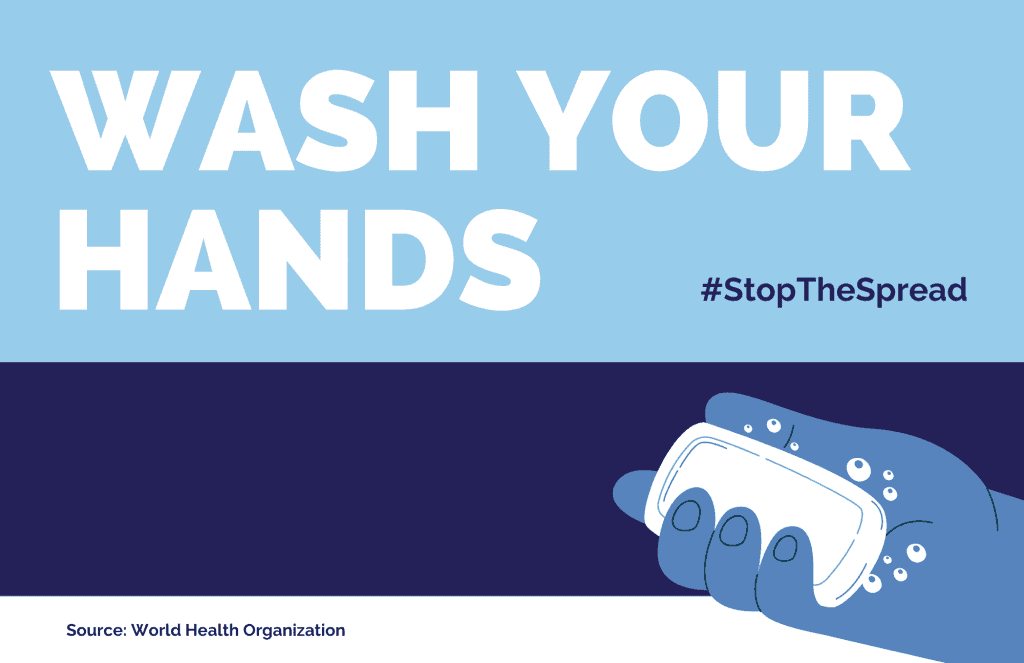Did you know the first week in December is National Handwashing Awareness Week?
And, with COVID cases spiking around the country, keeping our hands clean is one of the best lines of defense. So, get your workplace involved and have everyone brush up on their handwashing knowledge.
Why Handwashing Works
When you wash your hands, soap molecules act like crowbars. They pry dirt, oil, and germs from your skin. In addition, soap breaks down the outer membrane of many microorganisms and viruses. This kills bacteria and leaves viruses (including the coronavirus) useless. Finally, the process of scrubbing and rinsing your hands loosens and removes any remaining debris.
How to Wash Your Hands Correctly
Washing your hands too quickly or without soap won’t provide full protection. The Centers for Disease Control and Prevention (CDC) recommends a five-step process.
- Wet your hands and apply soap.
- Lather up. Be sure to scrub the backs of your hands, between your fingers, and under your nails.
- Scrub for at least 20 seconds. If you don’t have a timer, hum the Happy Birthday song twice.
- Rinse your hands thoroughly under running water. 5) Dry your hands with a clean towel or let them air dry.
Handwashing vs. Hand Sanitizer
If you can’t find a sink, hand sanitizer is an excellent second option. For the best results, the CDC recommends using an alcohol-based sanitizer that contains at least 60% alcohol. Yet ultimately, sanitizers aren’t as effective as handwashing. Like soap, sanitizers defeat bacteria and viruses by breaking down their outer membranes. But unlike soap, they don’t pry microorganisms from the skin. Therefore, many germs, including those that cause the common cold, can successfully survive a dose of hand sanitizer.
Interesting Handwashing Facts
- Ignaz Semmelweis Is the Father of Hand Hygiene
Today, we consider handwashing a part of good basic hygiene. Unfortunately, this wasn’t always true. Hungarian doctor, Ignaz Semmelweis, pioneered handwashing efforts while working on a maternity ward in Vienna in 1847. Despite a drop in death rates at the hospital, it was 20 years before his research was widely accepted. - Plain Soap Works Just as Well as Anti-Bacterial Soap
According to the U.S. Food and Drug Administration (FDA), there’s no proof over-the-counter antibacterial soaps are better at preventing illness than plain soap and water. In fact, in 2013, the FDA proposed restrictions on antibacterial labeling. However, these rules do not apply to hand sanitizers or soaps used in hospital settings. - The Toilet Probably Isn’t the Dirtiest Thing You Touch
Of course, you want to wash your hands after touching a toilet. But… guess what? Your bathroom doesn’t even make the list of the top ten germiest spots. Grab the soap because everyday items like pet bowls, cutting boards, and sponges are full of bacteria too.
Are You Looking for More Ways to Improve Your Workplace?
We can help you build a talented and reliable team in 2020 and beyond.
Learn more about the advantages of partnering with us today!
